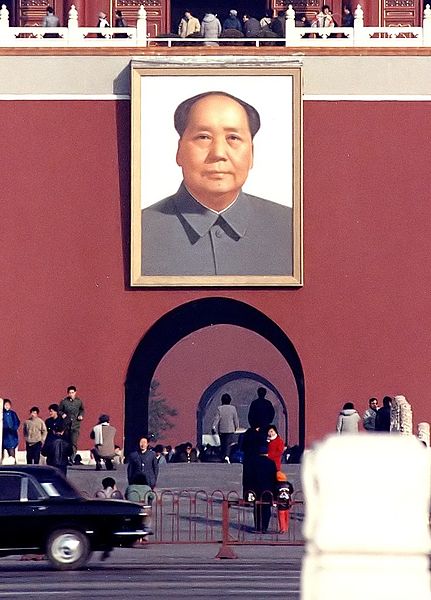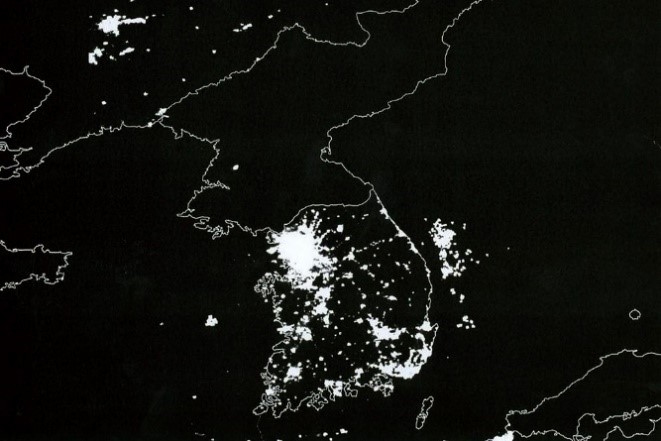In the United States, socialists are challenging capitalism. In Venezuela, socialism is destroying a nation.
In the United States, a younger generation is pushing for “democratic” socialism, while hundreds of thousands of Venezuelans are fleeing hunger, violence, and oppression endemic to their socialist paradise.
Younger generations in Venezuela would gladly live under the system that North American youth want to get rid of. Millennials and Zs in the US are turning their backs on “capitalism.”[1]
What is the root of this conflict of capitalism vs. socialism, between Marx and Weber?
Many Christians see socialism as compassionate and capitalism as soulless. For years, I was such a Christian. As a young man whose heart was turned to the poor, I described myself as an evangelical socialist. But, working with an international NGO for almost 30 years convinced me that socialism, and its cousin Marxism, create more poverty. Its rhetoric is simply ideological idealism.
The facts scream the true story. In the 20th century, socialism a la Stalin, Mao, Pol Pot, Kim, et al. is responsible for the intentional deaths of 100,000,000 people.
How many have to die before you admit that your idealistic ideology is wrong? Jordan Peterson has said it as clearly and powerfully as anyone. Watch his critique of so-called compassionate socialism, if you dare. [Go here if the video does not appear.]
While socialism killed hundreds of millions in the last century, enterprise and free markets lifted hundreds of millions out of poverty. We have written about this here and here.
Capitalism is grounded in theism, socialism in atheism
Behind the two opposing economic systems are different principles and ultimately two very different worldviews. In other words, the differences in the public square are rooted in the differences on the level of theology – theism vs. a-theism.
Does God exist? Do we live in a moral universe? Are humans made in the image of God? Is our existence defined by our common humanity? Or do we live in a purely naturalistic universe without a moral framework? Are we merely highly evolved animals, basically no different than a slug? Is survival of the fittest—raw power—the mediator of our existence?
Socialism is an idealistic fantasy, a dream that has cost, so far, one hundred million lives in the attempts to apply it in real human history.
Compassionate people—Christian or otherwise—who are committed to socialism need to reflect on the roots of theism and atheism. I was confronted with this truth in my late 30s.
My journey began while working for an international Christian relief and development organization. I came to a critical intersection between my head and my heart for people who were poor. (Read more about that here.)
In my reflection, I discovered that the policies and practices of socialism are rooted in a zero-sum model of economics. Free markets, on the other hand, are rooted in a positive-sum economic model. (Read about that here.)
A zero-sum economy sees the universe as a closed system. Nature is the only reality, God does not exist. The universe is a big machine, and resources are material by definition, and thus limited.
In God’s creation, resources are not a zero-sum game
On the other hand, the positive-sum economic model is built on the assumption that God exists, He is the creator of the universe, He has made human beings imago Dei (in His image), the universe is open to the transcendent (God, angels and humans). Resources can be created, wealth can be produced.
One system is derived from godless atheism, the other from Judeo-Christian theism. (For example, generating wealth and caring for one’s neighbor are moral imperatives.)
The closed system of socialism regards resources as limited. This system holds that some people are rich at the expense of those who are poor. The compassionate action is to take from the rich and give to the poor so  everyone can be equal. Today, for example, politicians are calling for free health care for all, free college for all, a minimum income for all whether they work or not.
everyone can be equal. Today, for example, politicians are calling for free health care for all, free college for all, a minimum income for all whether they work or not.
How will they achieve this? Through power! As Mao has famously said, 枪杆子里面出政权 – “political power grows out of the barrel of a gun.”
Postmodern millennials, often well-meaning, want to help the poor and seek justice. Yet at the same time they deny reality. They live in a world of illusion, clamoring for the socialism of Castro, Chavez and Maduro, denying obvious truths: Cuba is a prison, and hundreds of thousands of starving people are fleeing tyranny in Venezuela.
The Korean Peninsula has a similar testimony. North Korea’s Marxism demonstrates the “irredeemable” (to use Congresswoman Alexandria Ocasio-Cortez’s term) nature of the socialist enterprise. The small ruling class headed by Kim Jung–Un lives in royal opulence while the masses starve, many in enormous slave-labor camps.
Korea’s zero-sum record
The young Kim continues the disastrous zero-sum economic  policies of his father Kim, Jong Il, and grandfather, Kim II Sung. Jordan Weissmann writes:
policies of his father Kim, Jong Il, and grandfather, Kim II Sung. Jordan Weissmann writes:
In 1994, the year Kim [ Kim Jung II] inherited North Korea’s reins from his late father, the country was in the midst of a severe agricultural decline. The newly minted despot transformed it into a famine that would claim as many as three million lives. Food shortages have plagued the country ever since.
It begs the question: How did one man starve a nation of roughly 23 million people? The answer: By clinging to a broken economic system designed to do little but ensure his own survival.
In 1950, at the start of the Korean War, the per-capita GDP on the peninsula was $878. The entire peninsula—one ethnic group with one history—was impoverished. The major export was human hair for wigs. From that time, the north has embraced socialism, the south, capitalism.
 The difference in outcomes is captured in this nighttime satellite photo. Outside of Pyongyang, the north is entirely dark, while South Korea is a sea of light. In 2019, the per-capita GDP ranking of North Korea had barely doubled to $1,800, while that of South Korea had grown to $33,200.
The difference in outcomes is captured in this nighttime satellite photo. Outside of Pyongyang, the north is entirely dark, while South Korea is a sea of light. In 2019, the per-capita GDP ranking of North Korea had barely doubled to $1,800, while that of South Korea had grown to $33,200.
Which vision is more compassionate: socialism with its massive prison/work camps where Koreans are starving, or political and economic freedom? The choice is simple: freedom or tyranny; forced redistribution of scarce resources, or the poor becoming entrepreneurs, creating wealth for their families and communities. Can there be any mistake about the fruit of compassion?
The true record of secular humanism
David Limbaugh, in a recent article at CNSNews.com, elaborates on this difference: “One of the great ironies of secular humanism is its purported championship of mankind as the measure of all things while undermining what makes us human.”
Limbaugh points to socialism as one example.
Throughout history, socialists have duped millions of well-meaning people into believing that free market capitalism is evil and socialism is noble. … [Socialism] is fundamentally at odds with human nature and the human spirit. It arrogantly assumes it can remake human beings as irresponsive to incentives and devoid of their competitive spirit and their natural yearning for liberty.
Roman Catholic economist Michael Novak characterized socialism as a utopian system that required humans to act unselfishly. But that’s not reality. Socialism invariably erodes, and often erases, private property, which is a biblical concept as seen in the ninth commandment. Limbaugh reflects this in his article.
In practice, socialism has consistently impoverished and enslaved. With its top-down control of the economy, it obliterates individual economic liberty and thus robs individuals of an essential part of their humanity. Government-forced transfer payments — taking other people’s money to satisfy one’s sense of moral self-worth — is a far cry from charity and compassion. I know of no conservatives who oppose a social safety net for the truly needy, provided it incentivizes the able-bodied to return to the workforce.
Socialism may sound appealing in theory. But as followers of Christ, we must be clear about its dehumanizing effects, the fruit of its unbiblical view of the nature of man created in the image of God.
– Darrow Miller
[1] I am using capitalism in the sense of free markets within what the late economist Michael Novak describes as a moral ecology. This stands in contrast to a system of markets without moral restraints often called chrony capitalism, hedonistic capitalism or raw consumerism.







2 Comments
Jon
May 27, 2019 - 6:13 pmI’ve known a number of Christians, including missionaries, who seem to think “capitalism” is a bad word.
They assume it means “all the evil in the world resulting from greed.”
Interestingly, it seems hard for them to grasp that socialism is greed as well. Greed to steal from the rich and give to the poor (supposedly).
There is greed and sin and taking advantage of others in capitalism, but also in socialism.
But capitalism leaves the possibility of prosperity and generosity. Socialism destroys wealth.
admin
May 28, 2019 - 1:20 pmYes, Jon, well said.
Gary